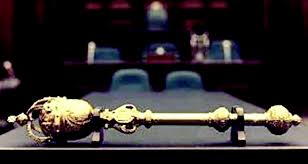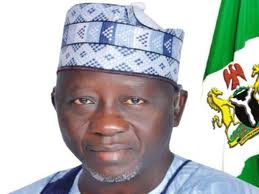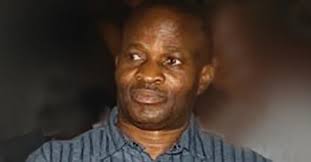Enugu Assembly Clears New Deputy Governor, Nwoye

Two days after Mr. Sunday Onyebuchi was impeached as the deputy governor of Enugu State over alleged gross misconduct, the state House of Assembly yesterday screened and confirmed a nominee for the vacant position.
At the resumed sitting of the assembly yesterday, the assembly Speaker, Eugene Odoh, had read the letter of Nwoye’s nomination to his colleagues.
The governor in the letter stated that the confirmation of Nwoye was necessary in order to fill the vacuum created by the impeachment of his former deputy on Tuesday.
Hon. Anichukwu John Nwankwo, Nkanu East Constituency, moved the motion for the confirmation of Nwoye without much questioning since he had been screened severally in the past.
His motion was seconded by the Leader of the assembly, S. K. C. Ude-Okoye, Awgu North Constituency, following which the Speaker put the motion to vote and he was unanimously confirmed.
THISDAY checks revealed that the deputy governor-designate has been in the service of the state government since 2000 when he served as Commissioner for Environment and Solid Minerals during the administration of former Governor Chimaraoke Nnamani.
He also served as a Transition Committee, Chairman of Nkanu East local government at the inception of Governor Chime’s administration in 2007.
Before his nomination, he was a member of the State Pilgrims Welfare Board and also the presiding Bishop of Christ Ascension Church, Ugwuaji district headquarters.
Members of the assembly had on Tuesday impeached Onyebuchi following the adoption of the report of the seven-man investigative panel which found him guilty of gross misconduct bothering on abuse of office and disobedience to lawful directives of the governor.
While the former deputy governors condemned the impeachment process, the CLO said it was flawless and without blemish.
The FFDGN called on the National Judicial Council (NJC) to investigate the Chief Judge of the state over his role in the impeachment.
The Chairman of the forum and former deputy governor of Bauchi State, Alhaji Abdulmalik Mahmood, who led other members into an emergency meeting yesterday in Abuja, rejected the impeachment, noting it was a clear breach of constitutional process.
“We call on the NJC to quickly investigate the judge who constituted the panel over chicken allegations and determine whether or not there is sufficient evidence to act as he did, with no weighty allegations of corruption or any constitutional impeachable offence against the former deputy governor,” he said.
According Abdulmalik , that Onyebuchi could be subjected to such an abuse and denigration in the name of impeachment is a shame and is unhealthy for democracy.
The forum also described the development as an act of impunity and wanton abuse of constitutional process in the impeachment.
The organisation in a statement signed by its South-east Zonal Coordinator, Mr Olusoga Omotayo, and titled: ‘Enugu Deputy Governor Impeachment: Why the Process Could Not Be Flawed,” said it could not find any fault with the process, adding that it confirmed with all prescribed rules of law including those contained in statutes and decisions of the Supreme Court.
The statement read: “It becomes imperative for us to comment on this matter due to demands asking for our response because of our various press statements before this time demanding that constitutional provisions be strictly adhered to at the commencement of the matter.
“The Supreme Court in the case of Inakoju v. Adeleke (2007)2 M.J.S.C.1 ratio 22, stated thus: “Provided the legislature in the exercise of legislative power does not breach any constitutional provision or a statute, a court cannot adjudicate in any matter arising from the legislature because such disputes are not justifiable and are political.”
“The most distinguishable difference between Enugu’s case from the previous cases on impeachment of governors which came before the Supreme Court was that in Dariyes case; Dapianlong v. Dariye (2007) 8 M.J.S.C 140 and Ladoja’s case; Inakoju v. Adeleke (Supra), both the Plateau State House of Assembly and the Oyo State House of Assembly respectively embarked on legislative rascality and removed the respective governors without the required 2/3 majority of the assembly members needed to successfully commence and carried out the impeachment.
“In the present Enugu’s impeachment case after critically following upall the procedures adopted we saw that the procedure was flawless right from the commencement of the impeachment notice which was supported by 2/3 majority of the House members, to the setting up of the seven-man panel by the Chief Judge of the state who to our honest view successfully discharged the constitutional duty imposed on him by Section 188(5) of the 1999 Nigeria Constitution.




